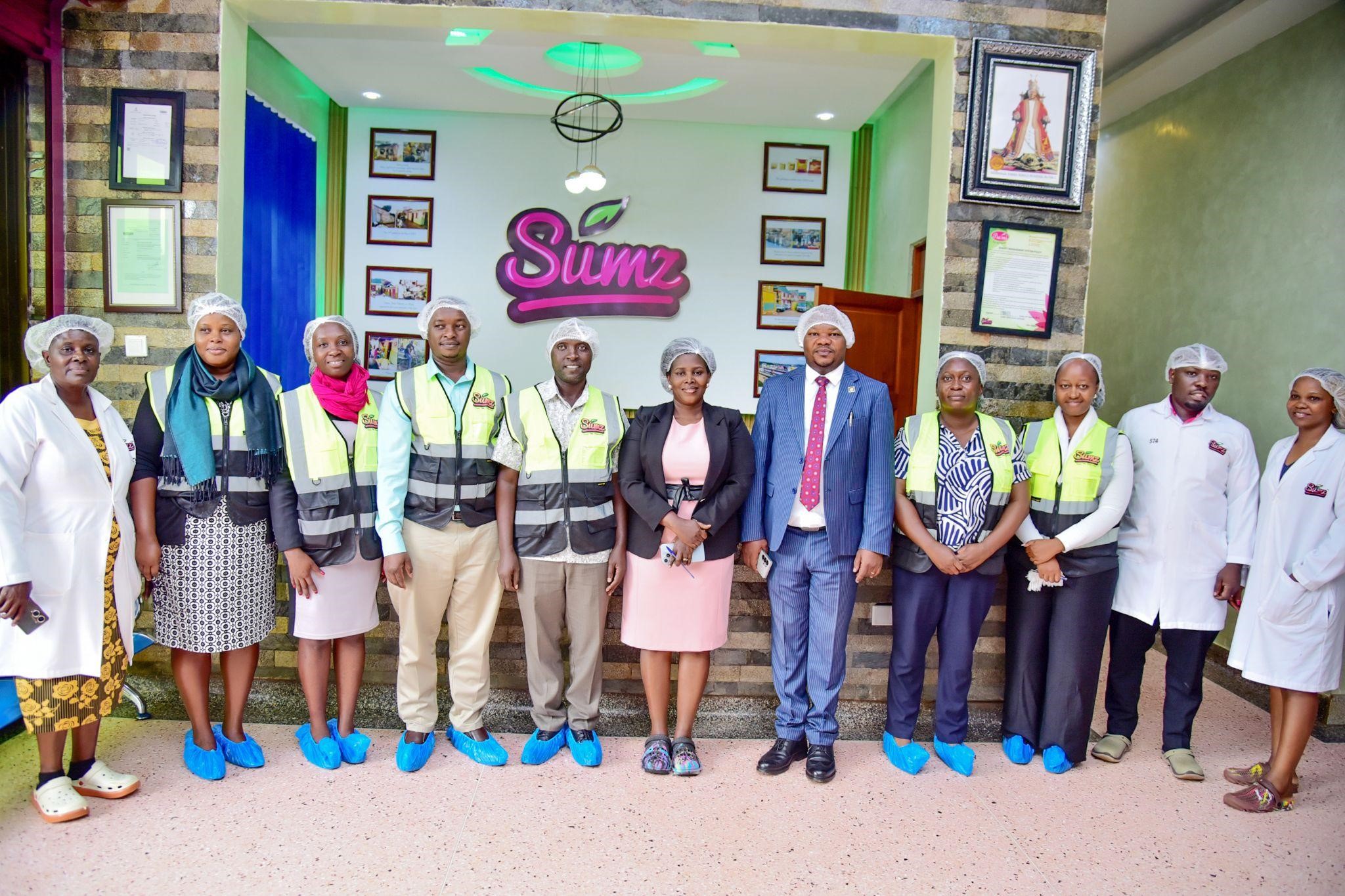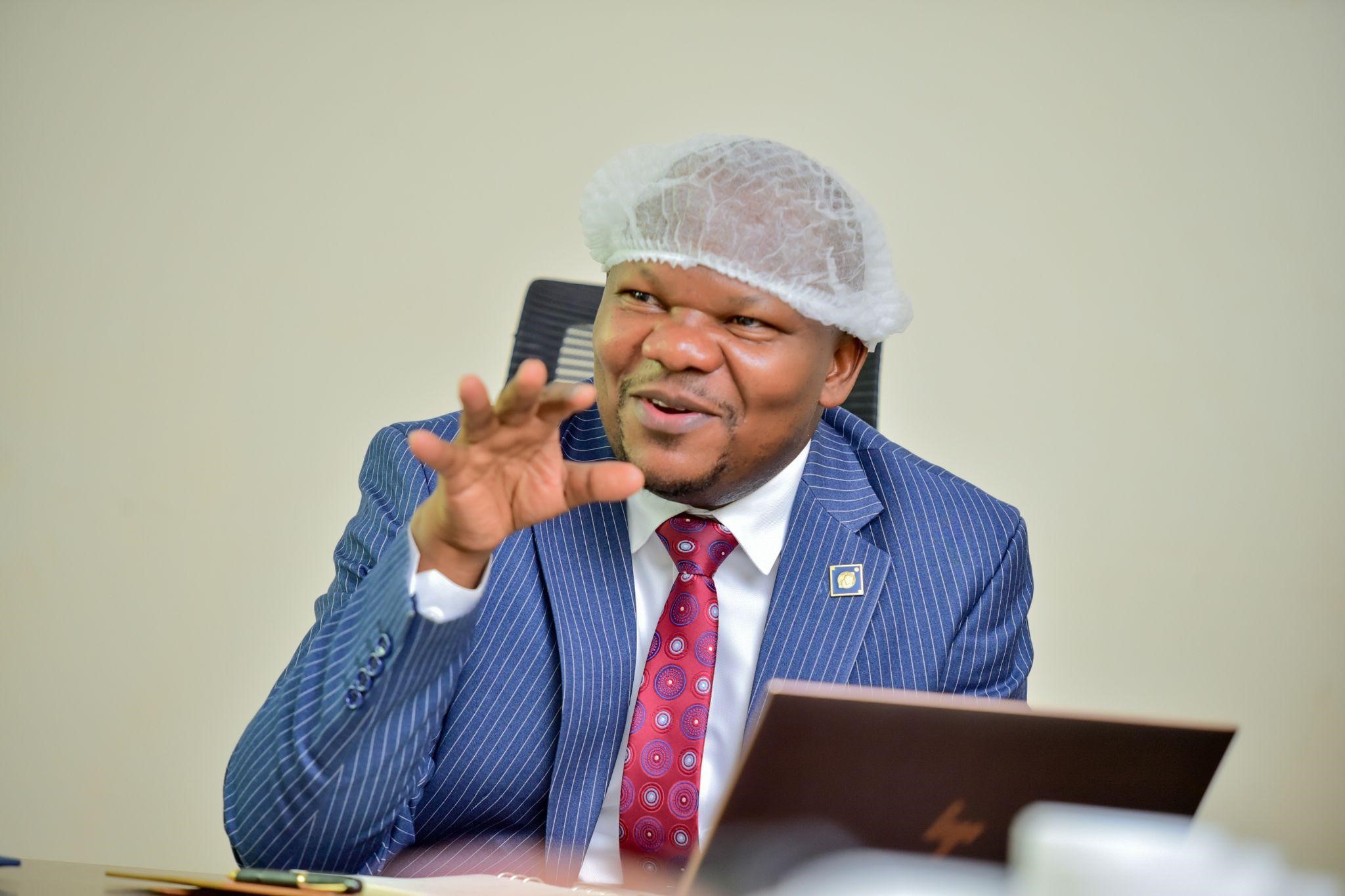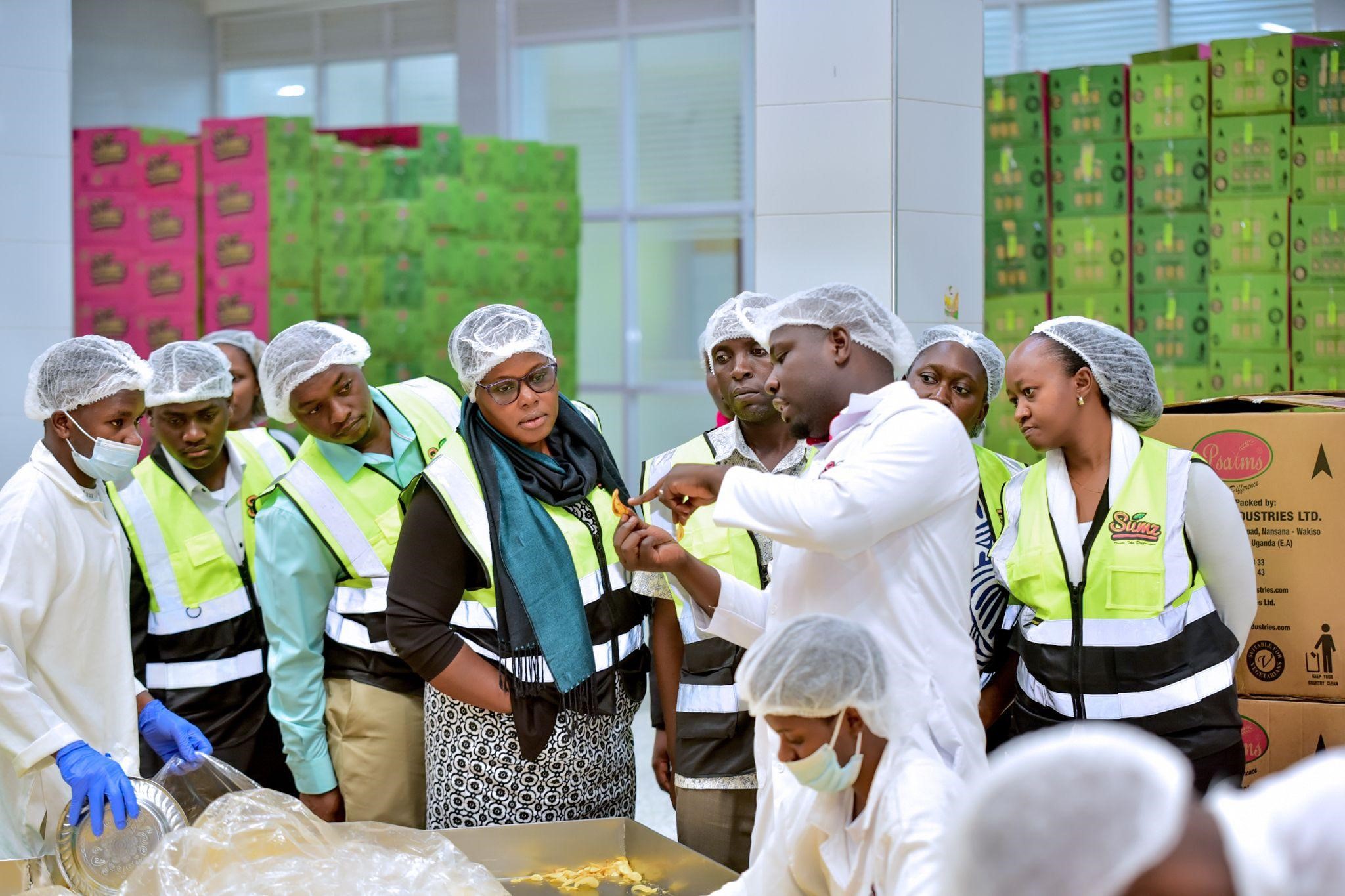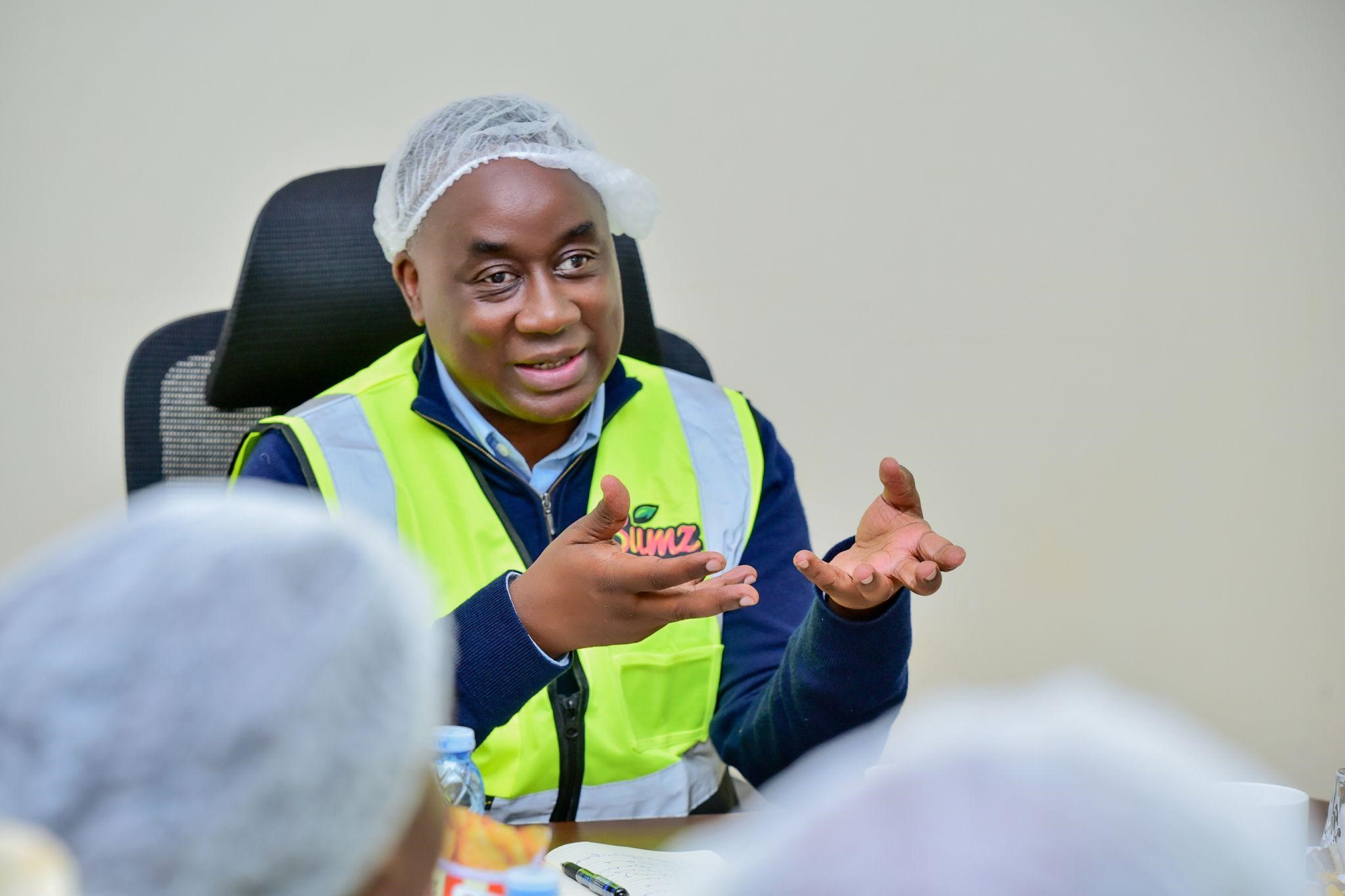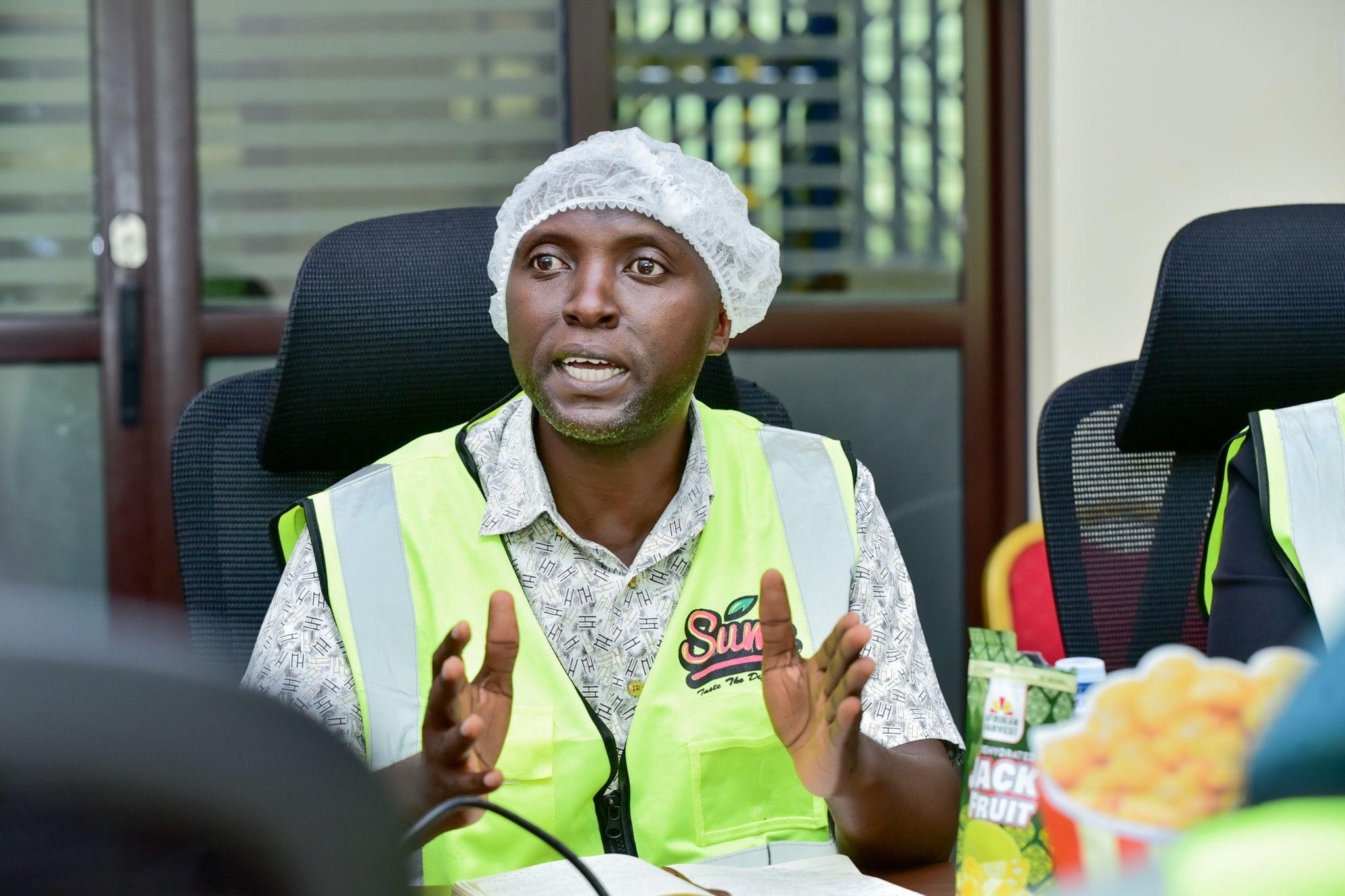The Deputy Chief Justice Alfonse Owiny-Dollo has appealed to academia to unpack for the community, the aspect of gender equality as enshrined in the Uganda Constitution. This was at the launch of the Gender Equality reports and a tool kit for gender equality practitioners on Wednesday, 10th April 2019 at the School of Food Technology, Nutrition and Bio-engineering Conference Hall, Makerere University.
Makerere University School of Women and Gender Studies (SWGS) and the University Forum on Governance (UNIFOG) conducted two studies to enrich the knowledge system around gender equality legal and policy framework in Uganda under the Gender Equality Project (GEP). Funded by the Democratic Governance Facility (DGF), the studies were conducted primarily to inform improvement in gender equality laws and policies by identifying the pros and cons in existing gender equality laws, policies and provide recommendations for improvements. The two studies then informed the development of a toolkit on gender equality indicators, results and measurement.

The three items launched included;
1. The Political Economy Analysis of Gender Equality Legislative Framework in Uganda
2. A Matrix and Analysis of the Gender Equality Laws and Policies in Uganda
3. And, Toolkit for Gender Equality Practitioners
In a keynote address on the Gender Equality Legislative Framework in Uganda – Strength, Gaps and Opportunities for Attainment of Holistic Gender Equality, the Principal Investigator, GEP-Assoc. Prof. Sarah Ssali mentioned that Uganda has a legal and policy framework conducive for advancing gender equality although the challenge still lies in implementation.

“This is among others caused by lack of deeper analysis of causes of gender disparity and addressing them. The Domestic Violence Act is for example a good gender law but without economic empowerment of women, rarely will the female victims report their breadwinners. The research helps in identifying these gaps and proposing ways of bridging them,” she stated.
Assoc. Prof. Sarah Ssali, also the Dean School of Women and Gender Studies, Makerere University reported that there was appreciation from the communities visited that stakeholders had over sensitized on issues of Gender Equality. She added that GEP carries out continuous horizon scanning on a weekly basis for any developments on the Gender Equality terrain such as communities adopting by-laws. The findings are then mapped with the GEP objectives so as to keep the Project in tandem with national dynamics.

Addressing participants at a highly colorful ceremony, the Deputy Chief Justice highlighted the importance of breaking down the complex terms on gender equality enshrined in the Constitution by academicians. This, he said, would help to inform the public about their rights and what the laws provide for when it comes to gender equality matters.
“It is important that this equality is unpacked and well explained. I am happy that in the Gender Equality Project, Makerere University and her partners do emphasize the equality of rights, voices and opportunities for all, which is a contribution to unpacking the aspects of equality as enshrined in our constitution,” he said.

Justice Owiny-Dollo noted that the 1995 Constitution in Article 21 proclaims equality for all persons. Since the promulgation of the Constitution in 1995, Uganda has registered commended gains in empowering hitherto marginalized group especially the women, youth and persons with disabilities.
“Some of the admirable developments in Uganda is that these critical social groups are now legally part of the decision-making processes at various levels of Government. Thanks to legal provisions for their representation in Parliament and Local Councils,” he remarked.

He informed participants that the gains in political representation can only be a starting point in the quest for gender equality. He therefore called upon women to leverage the existing framework and conditions to achieve a society where everyone has equal opportunities in economic, social and political aspects of life.
According to the Deputy Chief Justice, equality should be a responsibility for all of those bearing any obligations to guarantee rights. “We all read in the newspapers and most recently on social media of cases of domestic and gender based violence. Our institutions on inheritance, property ownership, rights over children still disadvantage women over men. This is what we call the underlying constraints, which unless resolved, the attainment of gender equality will remain a challenge,” he said.

He applauded Makerere University School of Women and Gender Studies (SWGS), the University Forum on Governance (UNIFOG) and the Democratic Governance facility (DGF) for establishing a project with effective interventions to foster gender equality.
Highlighting the tremendous role done by the DGF in promoting human rights, and enhancing access to justice in Uganda, the Head, Mr. Wim Stoffers, said that his organization is mindful of the role of Universities in shaping the discourse on democratic governance.

He mentioned that DGF has extended support to several projects at Makerere University that aimed at contributing towards gender equality legislation in Uganda. DGF has also supported individual projects carried out by staff of the University.
“Gender is among the three crosscutting issues in the current DGF programming. There is need for all stakeholders to understand gender in a broad context beyond women, women empowerment and activism. Gender is not a women’s thing,” he said.
He commended the two reports saying that they will be key reference documents in the gender discourse. He congratulated SWGS and UNIFOG upon the tremendous milestone. “I reiterate our commitment to supporting processes aimed at building a Uganda where citizens are empowered to engage on democratic governance and where the state upholds citizens’ rights,” he said.

The Vice Chancellor of Makerere University Prof Barnabas Nawangwe applauded the School of Women and Gender studies of the comprehensive research on gender equality. He said that Makerere University through the School of Women and gender Studies has demonstrated strong commitment to ensure gender equality in University.
“We have put in place a well-established Gender and Mainstreaming Directorate to mainstream gender in the University functions and propel the struggle for gender justice at Makerere University and beyond. Through the School of Women and Gender Studies, we have been able to address gender and development issues from an African perspective. We introduced the affirmative action to encourage girl child education and we are recently working on the various strategies of encouraging girls to engage in STEM” he explained.

The Chairperson of the GEP Steering Committee Prof. Mukadasi Buyinza called upon the Government of Uganda, funders and all development partners to support research especially in the area of women and gender studies. He shared that the project will be further implemented in the four major regions of Uganda where the GEP has already identified and engaged with various stakeholders in twenty Districts.
The day’s proceedings were ably moderated by UNIFOG's Executive Secretary, Mr. Bruce Balaba Kabaasa who noted that findings of the reports and guidelines in the toolkit for practitioners had been informed by stakeholders from all twenty Districts and as such, were representative of a National spectrum. The GEP is implemented in the districts of: Adjumani, Apac, Arua, Gulu and Lira in the North; Kampala, Kiboga, Masaka, Mukono and Wakiso in the Central; Bugiri, Busia, Jinja, Mbale and Soroti in the East; as well as Hoima, Kabarole, Kasese, Mbarara and Rubanda in the West.

The function was further enriched by a Public Dialogue held under the theme: Disrupting Business as Usual; Innovating Ways of Influencing Holistic Gender Equality Legislation in Uganda.
The interactive session chaired by Mr. Kiranda Yusuf- Deputy University Secretary and Technical Advisor GEP, consisted of prominent panelists including; Ms. Linda Bore-an Advocate from High Court of Kenya, Ms. Perry Aritua-Executive Director of Women’s Democracy Network Uganda Chapter and Hon. Asuman Basalirwa-MP Bugiri Municipality. The panelists argued that changing the mindsets of society is key to the successful implementation of Gender Equality legislation.

The panelists further noted that whereas the gains made by Gender Equality legislation were evident, these all stood the risk of being eroded by demographic issues such as the rapidly growing population and the need to tackle topics like reproductive health. Furthermore, there was general consensus that there is need to unpack Gender Equality advocacy into messages that can easily be disseminated at the grassroots by legislators seeking (re-)election to the August House.
Article by Nabatte Proscovia, Mak Public Relations Office
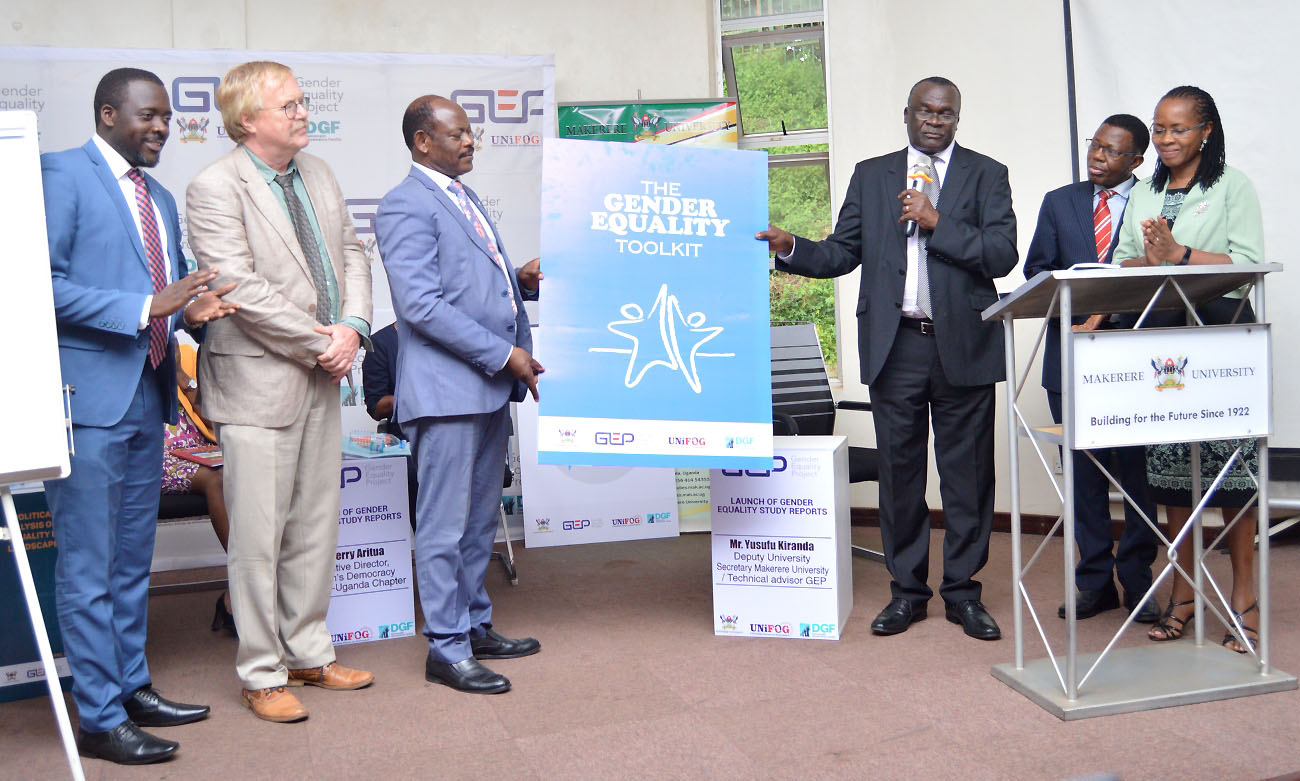

 Humanities & Social Sciences1 week ago
Humanities & Social Sciences1 week ago
 General1 week ago
General1 week ago
 Agriculture & Environment2 weeks ago
Agriculture & Environment2 weeks ago
 Health2 weeks ago
Health2 weeks ago
 Agriculture & Environment1 week ago
Agriculture & Environment1 week ago











